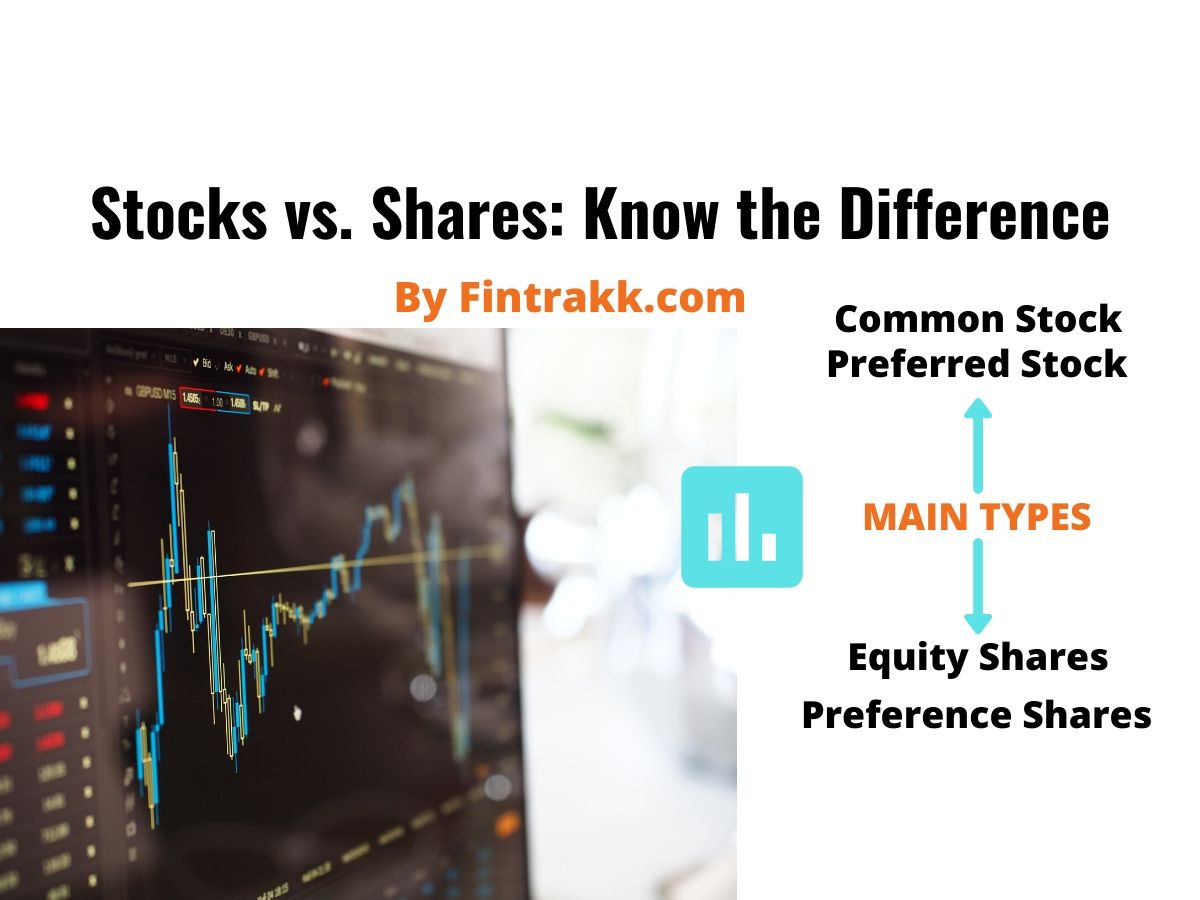As traders and investors, we usually use the words stock and shares interchangeably, even without realizing these are not same. To be frank, there is very thin line of difference in between the two. Not only the beginners but also the advanced traders are many times confused about these crucial terminologies In this article we will try to explain Stocks vs. Shares, the key difference between the two important stock market terms.
What are Stocks?
These are securities that the company issues when they intend to raise capital or funds to add to its growth or expansion. They offer ownership in exchange for money from investors. Stock is basically a cluster of shares. When an individual says they hold stocks, it could mean they hold a cumulative number of shares in a certain firm or several other firms.
Types of Stocks: By Ownership
Stocks can be classified on a number of parameters like market cap, ownership, location, investment cycle, etc. For details you can explore Types of Stocks Every Investor Must Know.
Following are the different types of stocks based on ownership:
1. Common Stock:
Under these, the holder has rights to dividend and voting rights during corporate decisions. However, they don’t get priority when it comes to liquidation.
2. Preferred Stock:
Preferred stock holders receive priority for payments during liquidation over other members. They can be categorized into cumulative, non-cumulative, participating and convertible.
Now, let’s move further and understand the meaning of Shares. Of course, we’ll catch up with some of the similarities and dissimilarities between stocks and shares.
You may like: Best Newspapers for Stock Market News India
What are Shares?
A share is unit of capital which has an underlying ownership clause added to it. In simple terms shares are units of ownership in a corporation. In technical terms, they are actually the smallest denomination of a stock.
Types of Shares:
Following are the different types of shares:
1. Equity Shares:
These are the most common type of shares. You might have heard a lot about them! Equity shares provide its shareholders with voting rights. The dividend is variable and relies upon the availability of surplus capital or earnings or company policy.
You may also like: How Share Price is Determined? Factors that Influence Stock Price
2. Preference Shares:
There are no voting rights however they receive priority during insolvency and guaranteed dividend disbursements. These can be further classified into cumulative, non-cumulative, participating, non-participating, convertible, non-convertible, redeemable and non-redeemable.
Below are few comparisons between these two terms which will help you demarcate between them. A brief summary of the Stocks vs. Shares difference.
| Differences | Stocks | Shares |
|---|---|---|
| Meaning | It’s a common term applied to define the holding certificates of any business | It refers to holding certificates of one individual business |
| Am I required to make the full or partial payment? | It is wholly paid and there are no outstanding balances to be paid | It can be partially or wholly paid. Unpaid portion of share is collected by “call money” from shareholders |
| What about ownership? | Refers to the overall ownership in one of more businesses | When a business issues stock, each of the units of a stock is deemed a share |
| What about its value? | Two different stocks of a firm may or may not have equal value | Two different shares of a firm can have same or equal value |
| A firm issues a share only once and after that the investors may sell it to another investor | Original issue is not possible | Original issue is possible |
| Nominal value is often referred to as face or par value | They don’t have nominal value | They have nominal value |
| It’s the process of transferring existing units from one person to another | They can be transferred in fraction | They can never be transferred in fraction |
Also, have a look at Graham Calculator for Stock Valuation
The bottom line, there is a slight difference between stock and shares which can be understood when we measure them on certain criteria such as ownership, value, payments, transfer and so on. But, it’s not uncommon to see these stock market concepts referred interchangeably. So, next time you speak about stocks or shares, you’ll already be aware of the differences they have. What’s your favourite mode of investing? Feel free to discuss.

